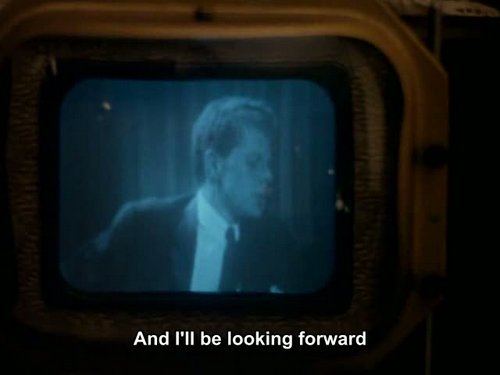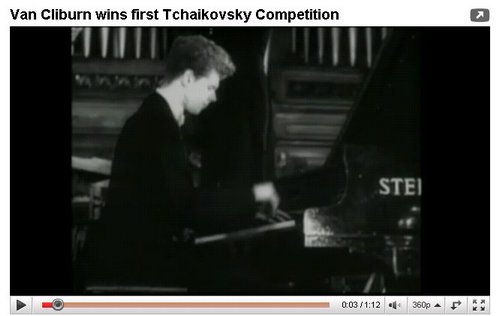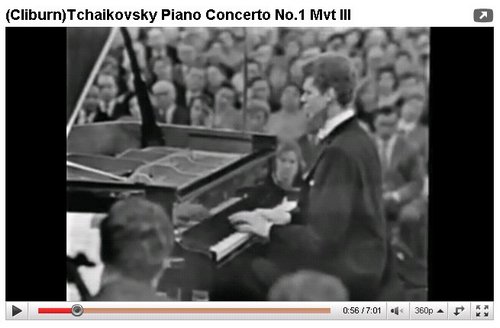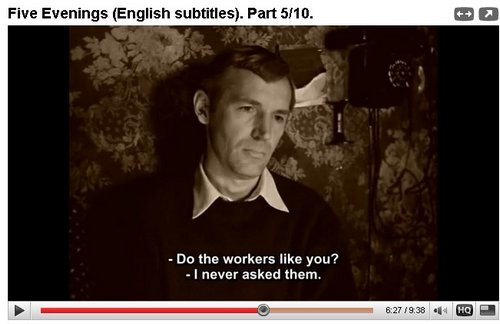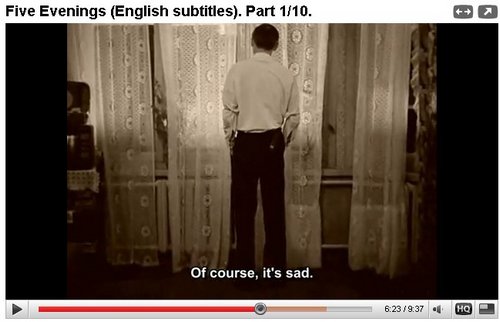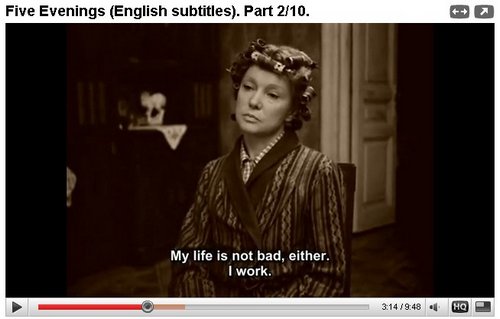I’m trying to figure out if this footage of Van Cliburn shown on the TV in Pyat Vecherov is really from his famous 1958 visit to Russia for the Tchaikowsky Competition, or if it’s from some later visit in the 1960s. Nothing in the movie or the clip says outright that it is from 1958, but 1958 is a year that would fit the setting of the film.
Here is a YouTube clip that contains some footage from 1958.
Here is some from 1962.
At first it seemed to me that the TV in the movie showed an older Van Cliburn than the 1958 one. It seemed he had bigger hair in 1958. But it’s hard to say for sure.
I like to have my memories calibrated accurately about these things. We didn’t have TV in our house until 1958, though everyone else of my age (that I knew of) had one in the home long before that. We did have a phonograph, though, with a 45rpm and a 78 rpm turntable. We didn’t have 33rpm records at our house until 1963. I thought I had remembered that even before 1958 we had a recording on 45rpm records with Van Cliburn playing some Rachmaninoff. I called my father tonight to ask. He remembered those records (which he no longer has) but said that pianist was Arthur Rubenstein. But I did hear talk about Van Cliburn back then.
On the TV he is trying to speak in Russian. Was he just just reciting those words for the occasion, I wonder? Or was he really trying to learn some Russian? So far Google hasn’t helped me find an answer.
